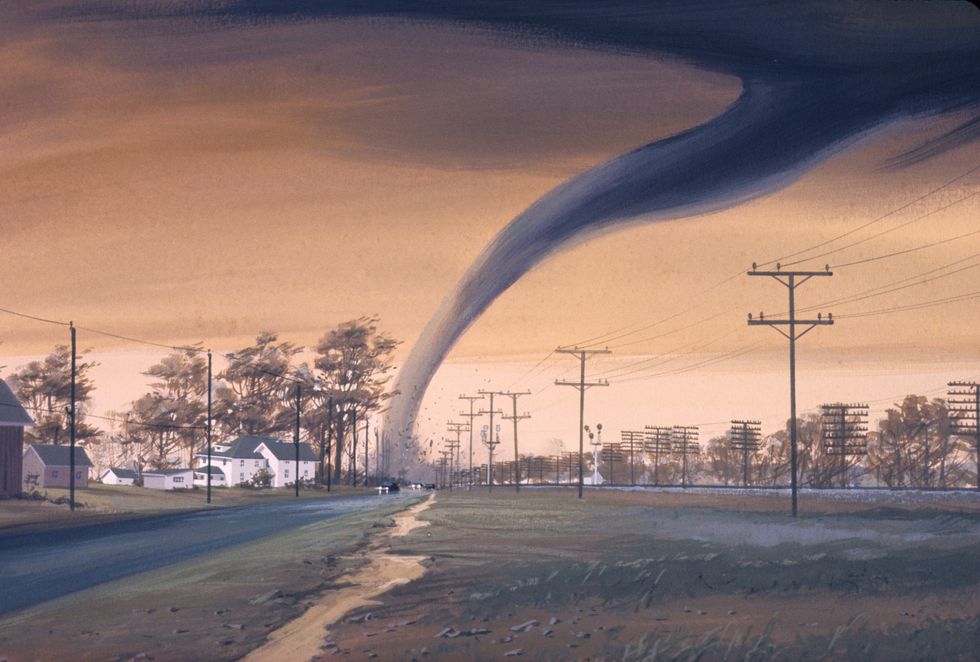College students always hear that they should use their time in school to learn about themselves and the world. It's easy to do that from the comfort of a classroom, but you'll gain better life experiences by stepping off-campus.
Over the last few years, dangerous weather events have become more common. They've flattened communities and left people in poverty, which makes it difficult for them to begin the recovery and rebuilding process. They'll need extra help to get back on their feet.
Universities can help their communities in the wake of natural disasters if students and faculty come together. Check out a few ways to give back without breaking your budget or taking time away from your studies.
1. Volunteer Your Time
When you're not in class or at your job, you probably spend your free time hanging out with friends or relaxing in your dorm. As soon as you finish your homework for the day, think about volunteering your time in the most affected neighborhoods.
You could help get rid of storm debris blocking driveways and roads or assist in tearing out damaged floors from flooding. Think about your strengths and teamwork abilities to find the best volunteering job for you.
2. Start a Food Drive
When a storm, flood or other natural disaster damages homes and disrupts communities, people need to use what little savings they have for repairs and bills. They may not have enough left over for their usual grocery budget, or there could be little food left after people stocked up before the weather event.
College students can start a food drive on campus by spreading the word or partnering with a local group. The Office of Student Life at Lipscomb University began to work with Hands On Nashville to give food to people in need after the recent Nashville tornados. Depending on what you plan to do and who your group works with, it may not cost any money to set up a donation site and deliver food when the drive ends.
3. Host a Blood Drive
Hospitals take pride in preparing themselves for natural disasters, but they can quickly run out of blood if enough people need a transfusion. Young people are great candidates for donations because they have the energy to bounce back. Host an on-campus blood drive and help those in need. You can also add it to your resume.
4. Look Into Proper Equipment
Large machines may be needed for community cleanup, but there may not be enough funds to do so. University students can ask for donations or petition campus faculty to look into getting proper cleaning equipment so the recovery process is easier. Bulldozers, dump trucks and excavators are just a few of the machines people often need after natural disasters but can't afford on their own.
5. Ask for a Day of Service
Your university or college wants to work with students, but it can't do that if you don't communicate what you want. Circulate a petition or email to ask for professors to cancel classes for one day so students can participate in a day of service. Middle Tennessee State University gave everyone a day off so more than 1,200 faculty could volunteer alongside students. If more people have free time, community recovery will speed up.
6. Collect Old Clothing
When families lose their homes, that often includes most of their clothing, too. It's hard to feel comfortable in a makeshift shelter when you wear the same clothes for days in a row. College students can collect old clothing from anyone who wants to donate in the community. Designate the school as a drop-off zone and deliver the items to residents afterward.
7. Schedule Community Events
Universities have plenty of space and rooms for events, which is great for cheering people up. Schedule a free family movie night or a theater production for no charge. Making people laugh and smile after a natural disaster is sometimes the best way to help.
8. Start a Bake-Off
Food drives are great, but they limit what people can give. Those who need help will get tired of canned food and dried goods, so start a bake-off. The winner can get a gift card, and all entries can go to those most affected by the recent bad weather. Fresh baked goods warm hearts and stomachs, especially after tragedy.
It's great if you're motivated to donate your time and efforts after a natural disaster, but working together with your university can help more people. There are many ways to give back to people in need, so think about your skills and start donating your time and efforts to assist with neighborhood cleanups.

















